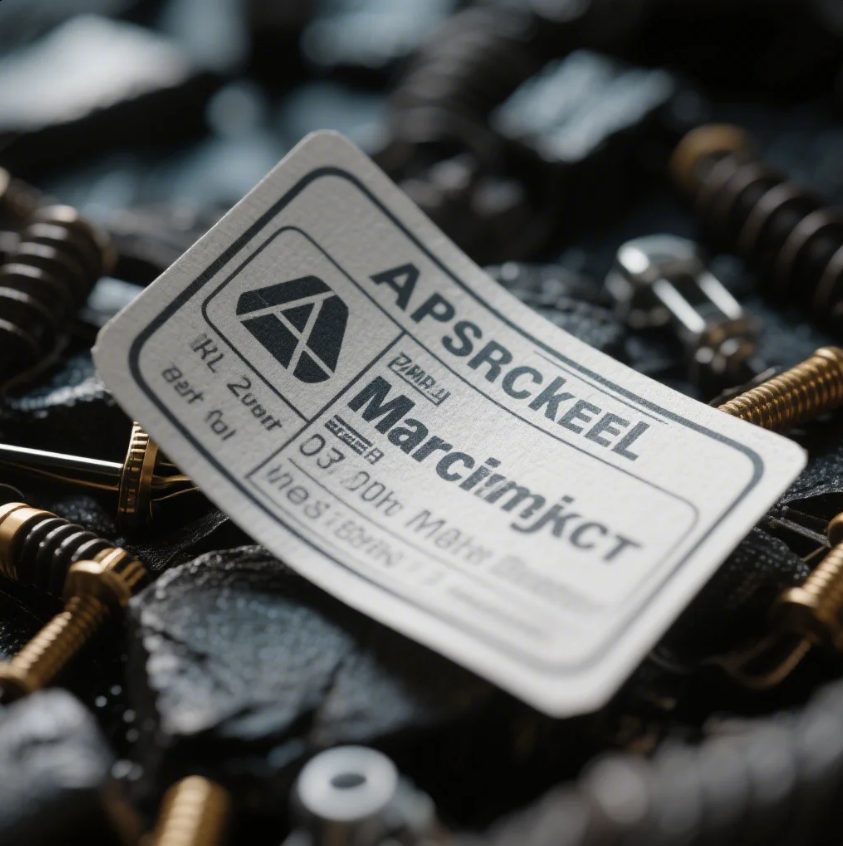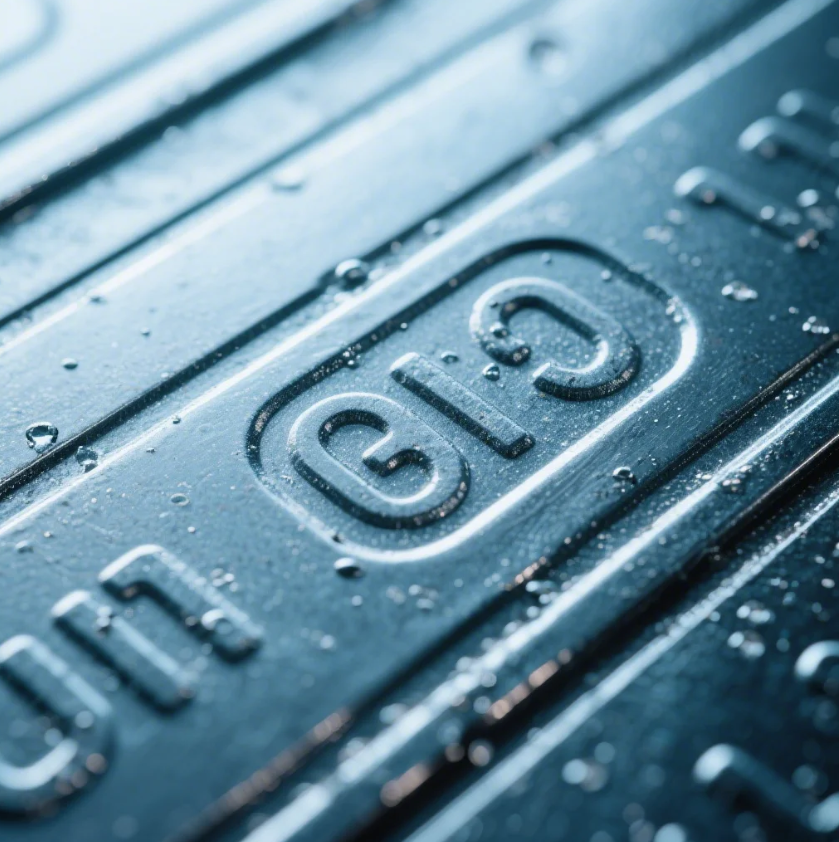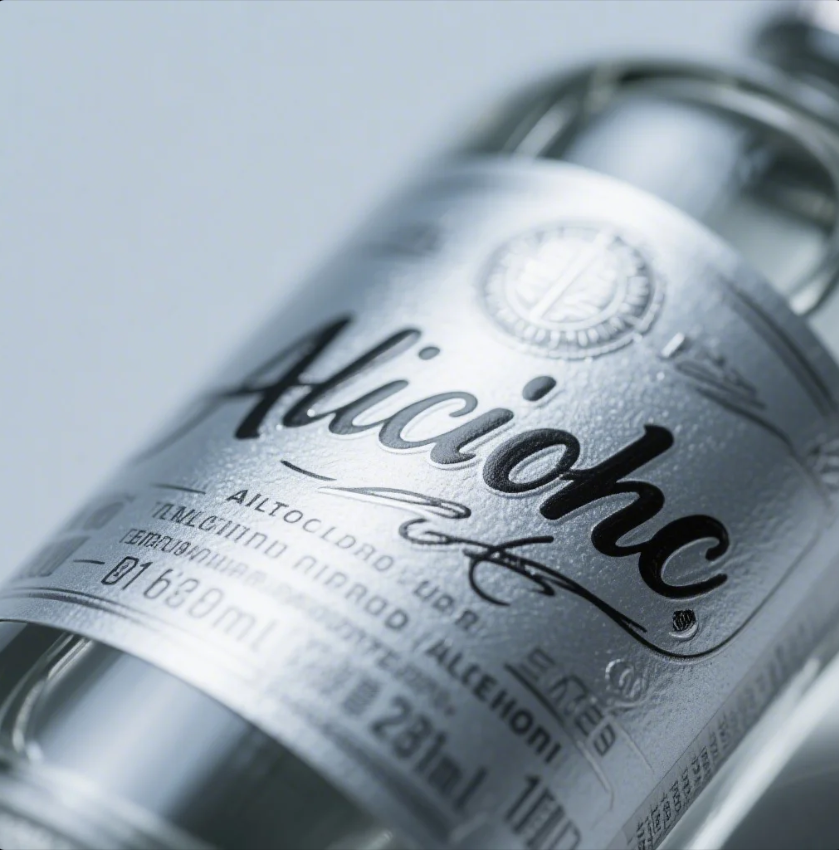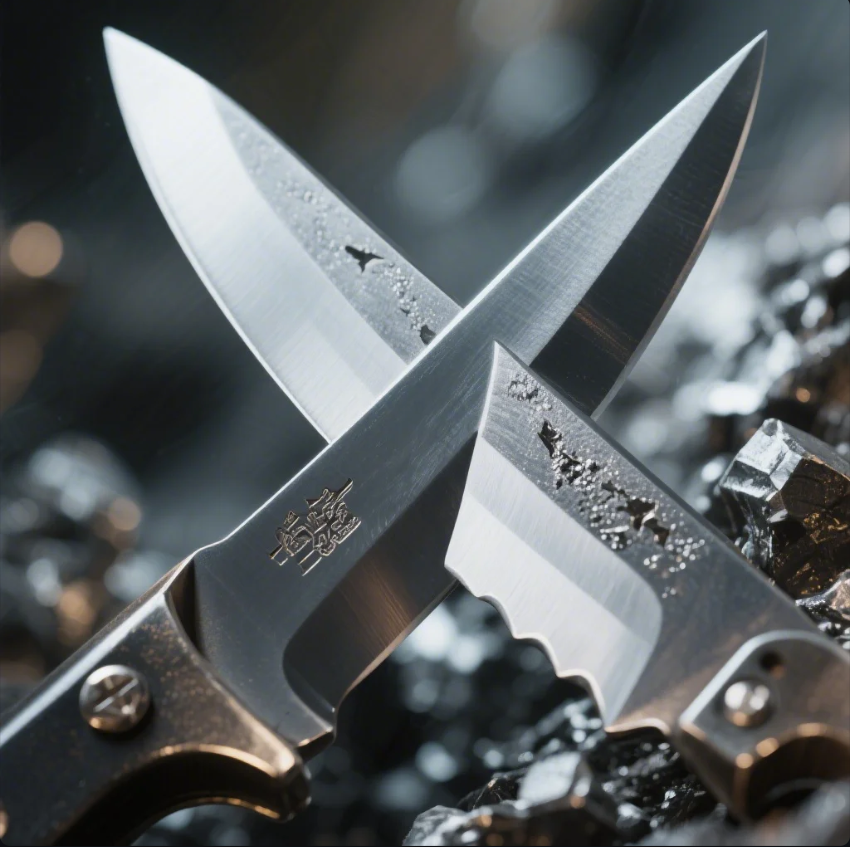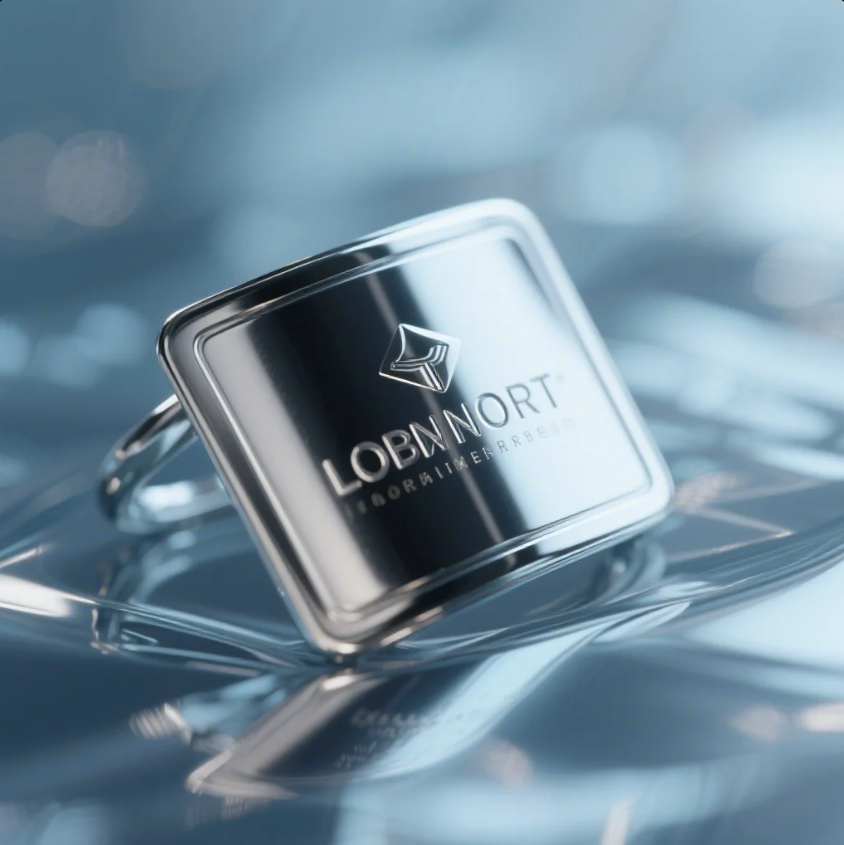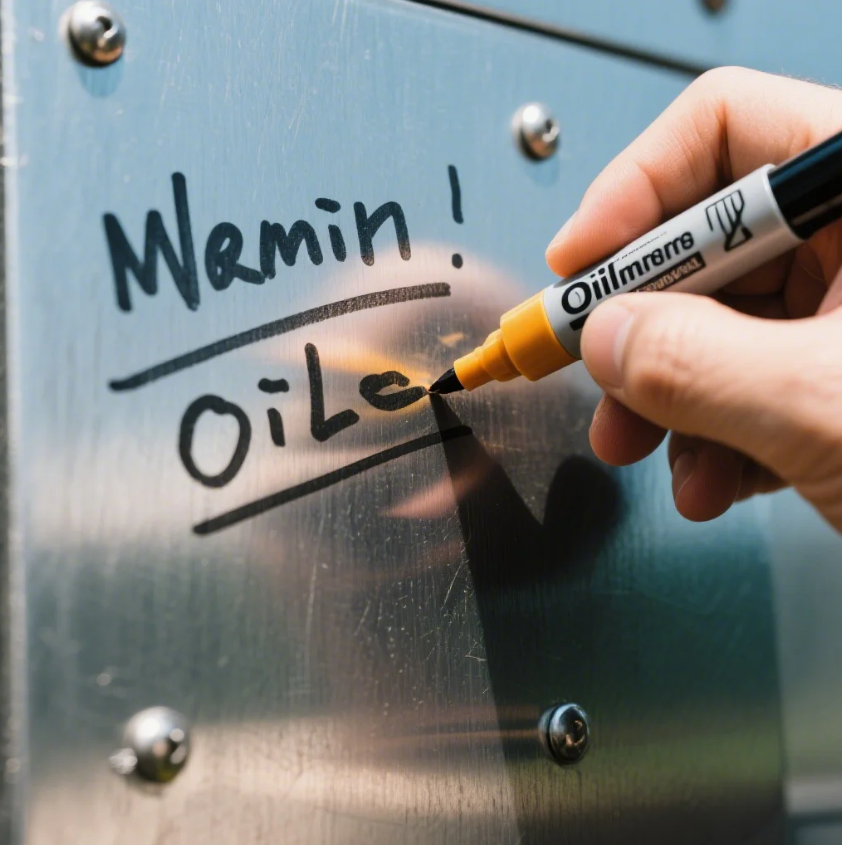TEMPLATE_START
What does FCAW mean in welding?
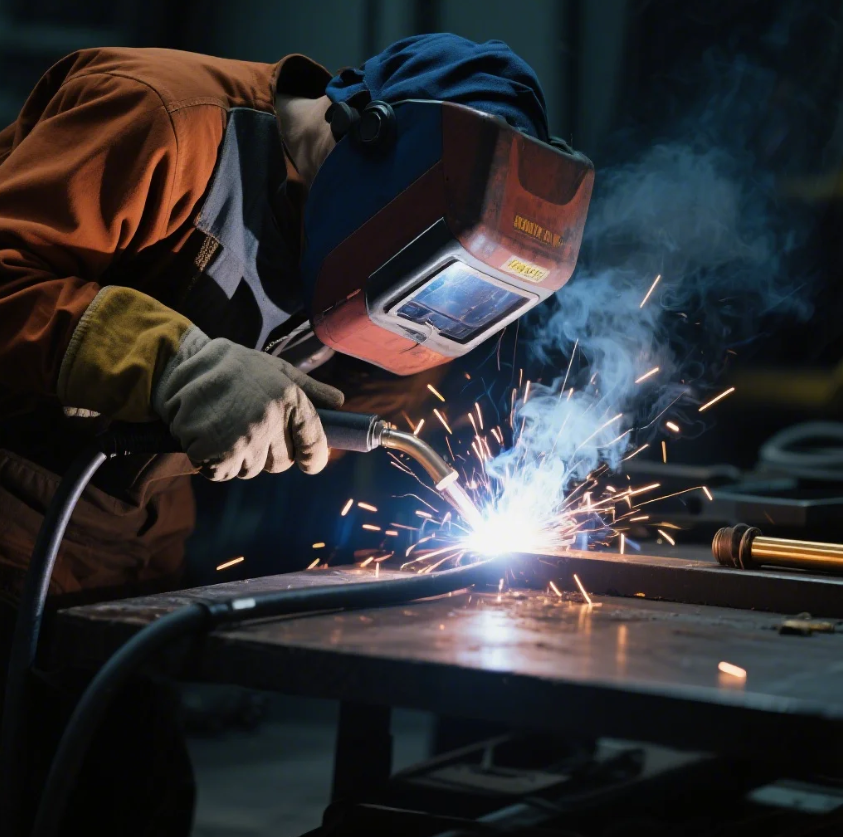
Welding is a critical process used in many industries, and understanding the different types of welding techniques is essential for selecting the right one for your project. One such technique is FCAW, but what exactly does FCAW mean in welding? And how does it compare to other methods?
FCAW stands for Flux-Cored Arc Welding, a welding process that uses a continuously fed tubular wire filled with flux to create a strong and durable weld.
In this article, we will explore what FCAW is, how it compares to other welding methods like GMAW, what it's used for, and the polarity settings typically used in FCAW welding.
What is the difference between GMAW and FCAW?
GMAW (Gas Metal Arc Welding) and FCAW (Flux-Cored Arc Welding) are both wire-fed welding processes, but they have key differences in terms of the wire used, shielding method, and applications.
Key Differences Between GMAW and FCAW:
| Feature | GMAW (Gas Metal Arc Welding) | FCAW (Flux-Cored Arc Welding) |
|---|---|---|
| Wire Type | Solid wire | Flux-cored wire |
| Shielding Gas | Requires external shielding gas (usually argon or CO2) | Uses flux inside the wire, no need for external gas (unless it's dual-shielded FCAW) |
| Weld Quality | Produces cleaner, smoother welds | Can have more spatter but can be more versatile for different conditions |
| Applications | Ideal for clean surfaces, thin materials, and indoor work | Works well in outdoor conditions, thicker materials, and dirty or rusted surfaces |
| Efficiency | Faster welding, cleaner welds but less penetration | Better penetration, higher deposition rate, more suited for heavy-duty applications |
FCAW is similar to GMAW in that it uses a wire-fed electrode, but FCAW has the added advantage of being able to weld without the need for external shielding gas in many cases. The flux within the core of the wire creates a shielding gas as it melts, protecting the weld pool from contaminants.
While GMAW provides a clean weld, FCAW is more versatile, especially for welding outdoors or on materials that may have surface contaminants like rust.
What is FCAW welding used for?
FCAW welding is used in a variety of industries and applications, including heavy fabrication, construction, shipbuilding, and pipe welding. The process is ideal for situations where you need high penetration, faster welding speeds, and the ability to handle dirty or rusted surfaces.
Common Uses of FCAW:
- Heavy Construction and Structural Welding: FCAW is often used in building large structures such as bridges, buildings, and industrial machinery due to its ability to weld thick materials quickly.
- Shipbuilding: The high deposition rate and ability to weld in outdoor environments make FCAW a go-to method in shipbuilding.
- Pipeline Welding: FCAW is highly effective for pipeline welding, where high penetration and speed are essential, especially in the oil and gas industries.
- Welding Outdoors: Since FCAW does not always require external shielding gas, it is ideal for welding outdoors in windy or harsh conditions, making it perfect for fieldwork.
- Welding Rusty or Dirty Materials: The flux-cored wire can clean the workpiece as it welds, making FCAW effective for welding materials that are dirty, rusty, or have mill scale.
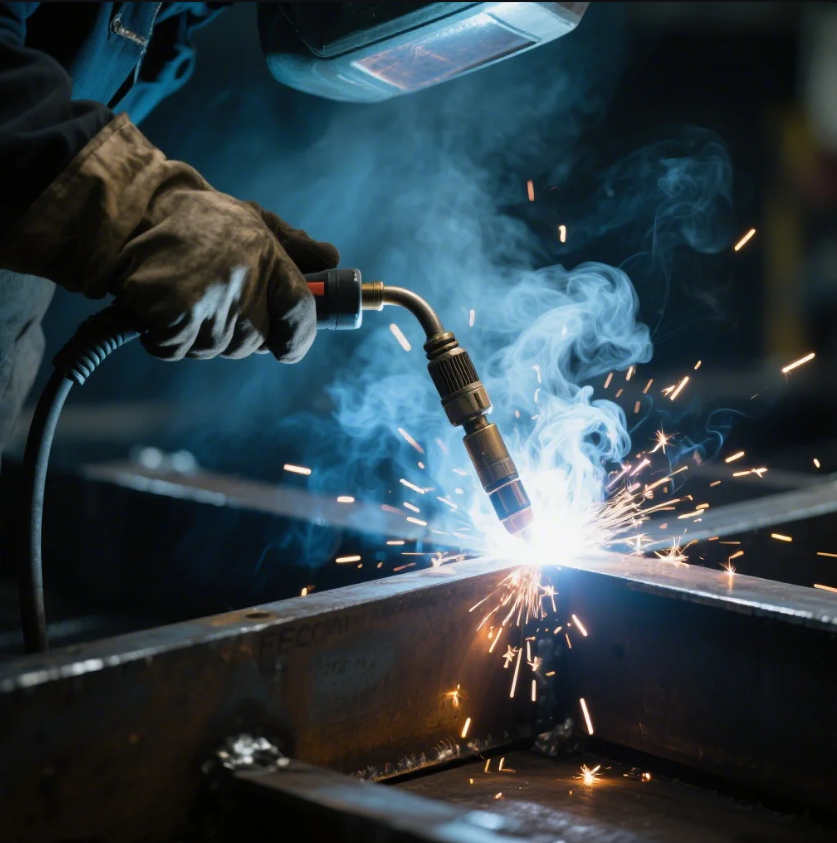
The versatility of FCAW, especially in outdoor and harsh conditions, makes it a preferred method for industrial applications requiring speed and strong welds.
What polarity is FCAW welding?
The polarity used for FCAW welding generally depends on the type of flux-cored wire being used. Most commonly, FCAW utilizes DCEP (Direct Current Electrode Positive) polarity, which ensures better penetration and stronger welds.
Common FCAW Polarity Settings:
- DCEP (Direct Current Electrode Positive): This is the most commonly used polarity for FCAW welding. In this setup, the electrode is connected to the positive terminal, and the workpiece is connected to the negative terminal. DCEP is preferred because it provides deeper penetration and produces stronger, more reliable welds.
- DCEN (Direct Current Electrode Negative): While less common, DCEN may be used in some FCAW applications. DCEN typically results in a cooler weld pool, which can be useful for certain applications or thinner materials.
In general, FCAW welding works best with DCEP polarity, which enhances the penetration, stability of the arc, and overall weld quality.
What does GMAW mean in welding?
GMAW stands for Gas Metal Arc Welding, which is another wire-fed welding process that is similar to FCAW. GMAW uses a solid wire electrode and requires an external shielding gas (such as argon, CO2, or a mixture of both) to protect the weld from contaminants.
Key Features of GMAW:
- Shielding Gas: GMAW relies on an external shielding gas to protect the weld pool, which provides cleaner welds with less spatter.
- Faster Welding: GMAW is generally faster than many other welding processes and is ideal for thin to medium materials.
- Clean Welds: Since there is no flux in the wire, GMAW produces clean, smooth welds that require little post-weld cleanup.
- Ideal for Indoor Use: The need for shielding gas makes GMAW better suited for indoor or controlled environments.
While GMAW is often used for clean, thin materials, FCAW is a better choice for thicker materials, dirty or rusted surfaces, and outdoor welding.
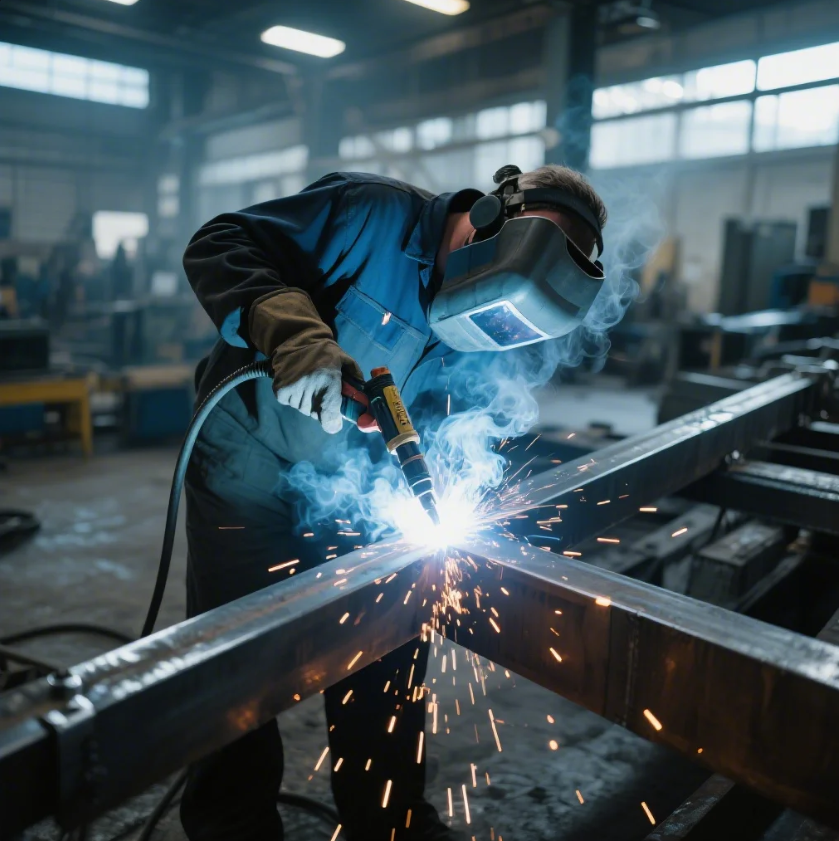
Main Difference Between GMAW and FCAW:
The key difference between GMAW and FCAW lies in the shielding method:
- GMAW requires an external shielding gas, making it more suited for indoor and clean environments.
- FCAW uses flux-cored wire to generate its own shielding gas, which makes it more suitable for outdoor work and applications where the workpiece might have contaminants.
Conclusion
FCAW (Flux-Cored Arc Welding) is a versatile and efficient welding process that offers many advantages, including the ability to work in outdoor conditions, handle thicker materials, and weld through contaminants like rust or dirt. The use of flux-cored wire provides excellent penetration and faster welding speeds, making it ideal for applications in heavy construction, shipbuilding, pipeline welding, and more.
By understanding the differences between FCAW and other welding methods like GMAW, you can select the best welding process for your needs. FCAW’s ability to be used with both DCEP and DCEN polarity, along with its strong performance in outdoor and harsh conditions, makes it a preferred choice for many industrial applications.
Need expert advice or welding components? Contact Prime today for custom quotes, fast delivery, and reliable welding solutions.
TEMPLATE_END

